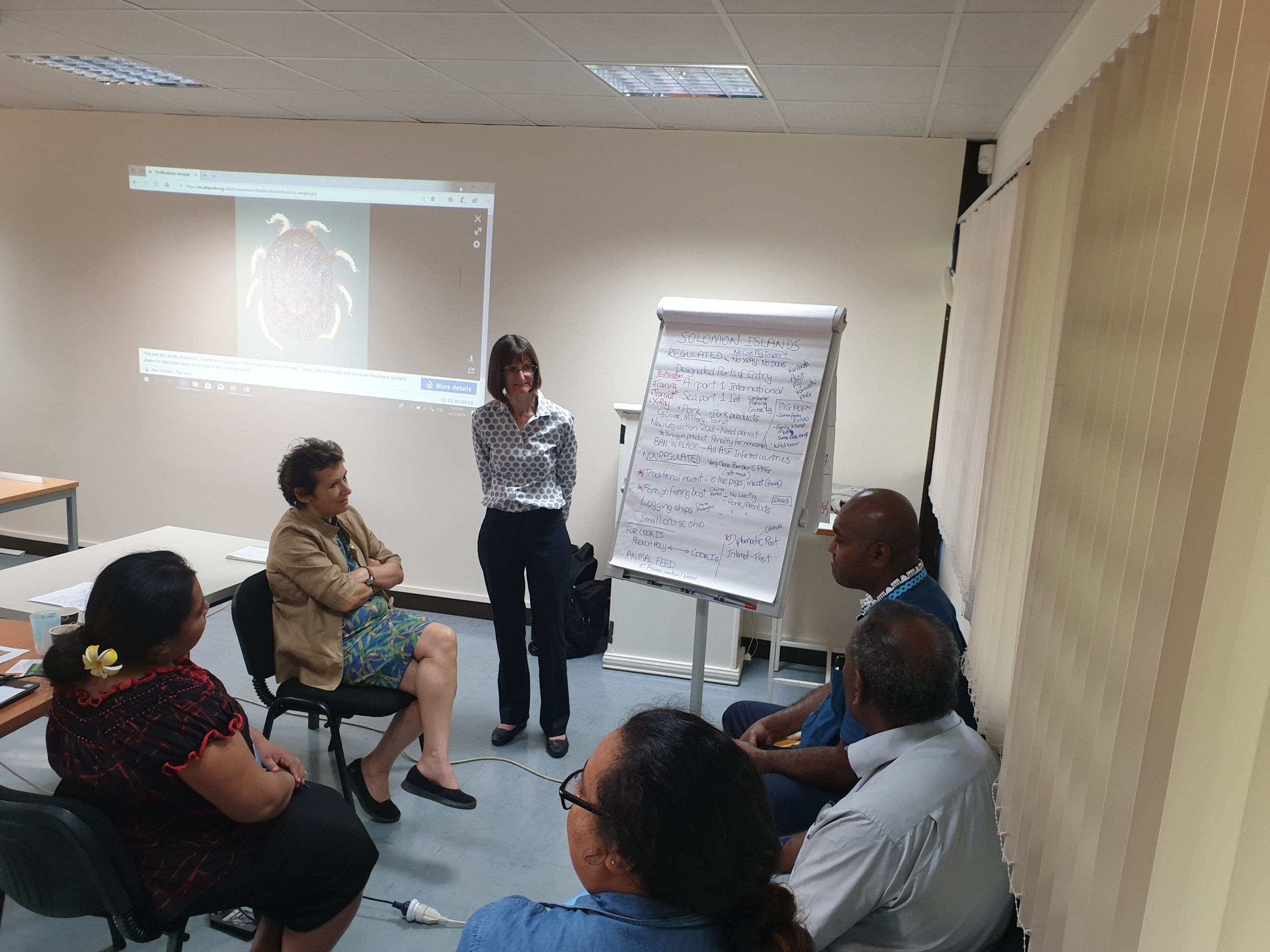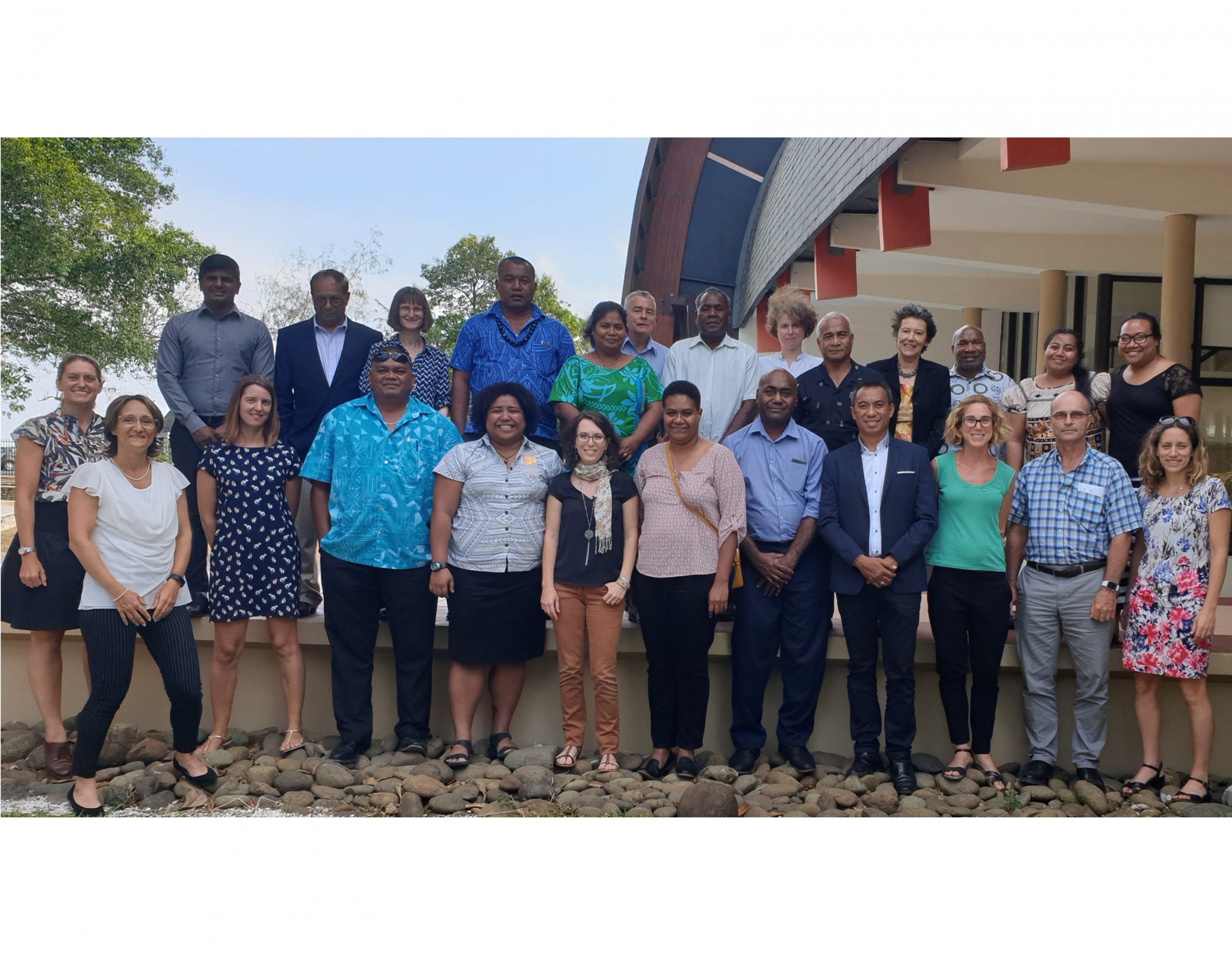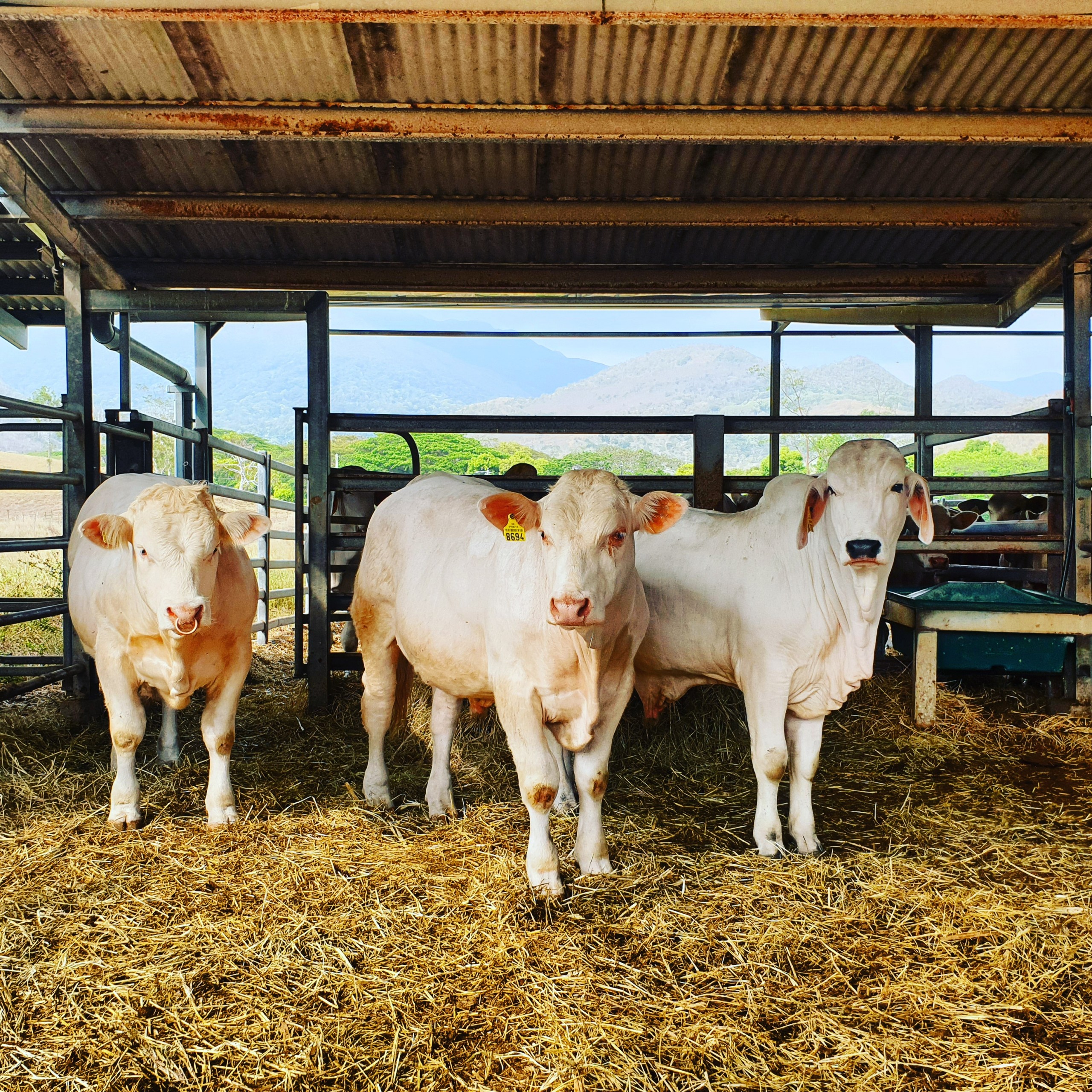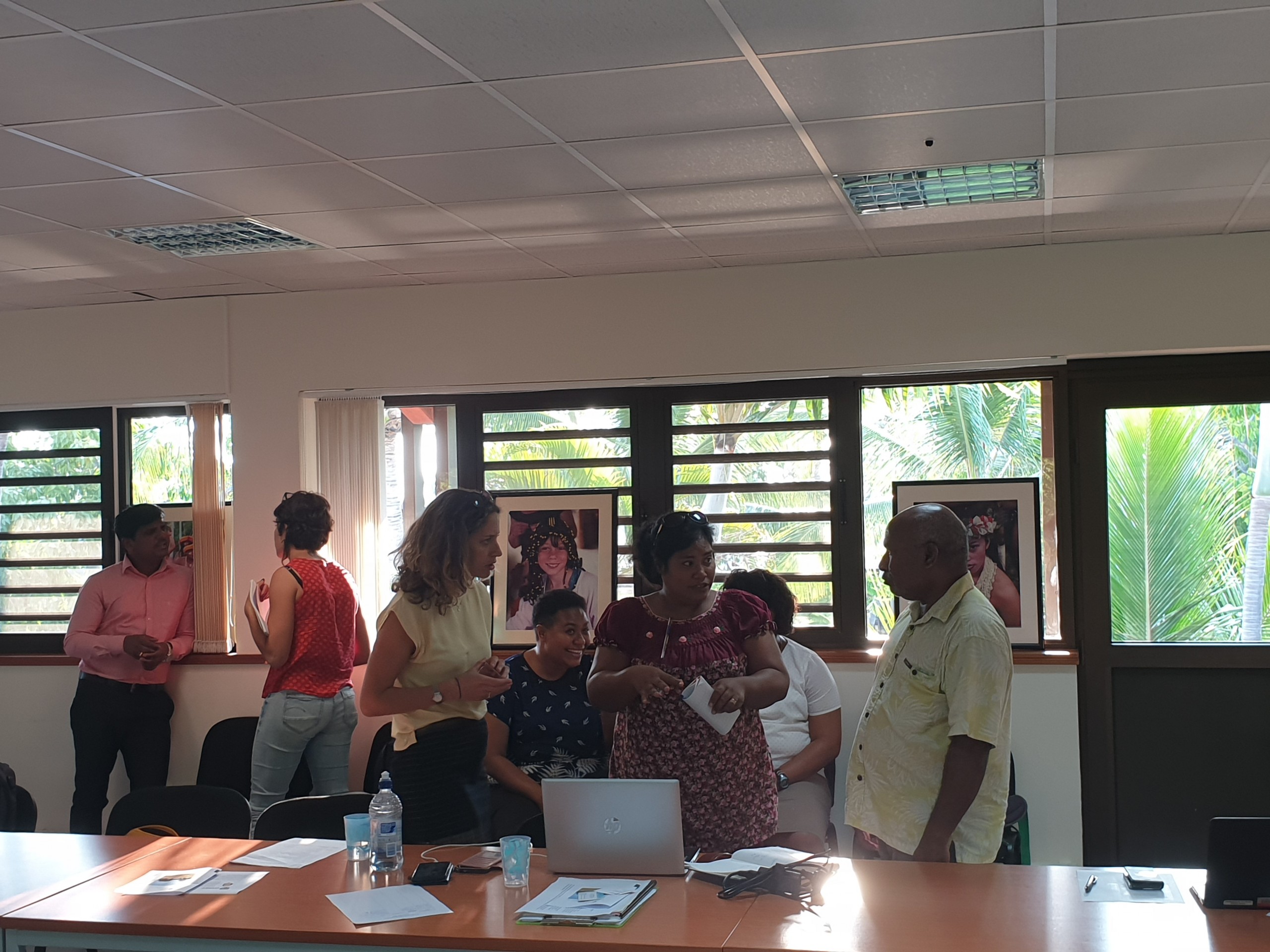Noumea (New Caledonia), 5 November 2019 – Veterinary and animal health government officers from 14 Pacific Islands countries and territories gathered in Noumea this week to discuss ways and mechanisms to protect the Pacific Region animal health status from transboundary animal diseases. The meeting was organised by the Food and Agriculture Organization of the United Nations (FAO), the World Organisation for Animal Health (OIE) and the Pacific Community (SPC).
“The Pacific Region is free from major transboundary animal diseases, a status which Pacific islands should work to preserve” said Caitlin Holley, Project coordinator, from the OIE Regional Representation for Asia and the Pacific.
Every two years, Pacific countries meet together with international experts to discuss about relevant aspects related to animal diseases management, such as import risk analysis, emergency preparedness, risk assessment pathways or zoonoses. This time, discussions focused on the prevention actions needed to avoid the introduction of transboundary animal diseases that can have catastrophic impacts on the region.
“The introduction of transboundary animal and zoonotic diseases could not only impact the health of animals but directly impact people’s lives and livelihoods “” says Katinka de Balogh, Senior Animal Health and Production Officer from the UNFAO Regional Office for Asia and the Pacific.
The Pacific region imports about 80% to 90% of its food resources from other countries so that transboundary diseases are a permanent threat for the region. At the same time, the livestock sector plays a vital role in the economies of the majority of the Pacific countries, in particular the aquatic animal sector, by providing food, animal protein, income, employment and trade opportunities. Animal disease outbreaks can jeopardise these socio-economic benefits.
A very high proportion of aquatic animal production is traded internationally, accounting for 10% of total global agricultural exports.
“Pacific Islands with a developed tourism industry, such as Vanuatu and Fiji import an important volume of crustaceans and other seafoods” says Ruth Garcia Gomez, SPC Aquatic Biosecurity expert. “The aquaculture sector is becoming more and more a relevant economic activity for the Pacific local communities, as an alternative income generating activity, for import substitution and to improve food and nutrition security in isolated local communities. It is a clear priority that farmed aquatic species are healthy and free from diseases and pests in order to be performant and productive” she concludes
During these three days meeting, participants from Fiji, Papua New Guinea, Vanuatu, Samoa, Solomon Islands, Cook Islands, French Polynesia, Tonga, New Zealand, Australia, Timor Leste, Federate State of Micronesia, Kiribati and New Caledonia shared their national experiences, discussed about notifiable diseases and epidemiological surveillance programs, based on the Global Framework for the Progressive Control of Transboundary Animal Diseases initiative (GFTADs). This framework, globally led by FAO and OIE serves to empower regional alliances in the fight against transboundary animal diseases and provides capacity building to assist regional priorities for the specific control of certain TADs such as African swine fever, rabies and foot and mouth disease.
The expected outcome of this meeting is to improve and harmonize national practices for the management of TADs, first of all, to preserve the high animal health status of the Region, and secondly, to improve livestock and aquaculture production.
For more information




